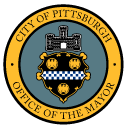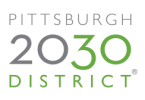 PITTSBURGH, PA (March 2, 2021) – Mayor William Peduto and the City of Pittsburgh Shade Tree Commission have announced a new Equitable Street Tree Investment Strategy to promote maintenance in low-income neighborhoods with low tree canopy cover as part of Mayor Peduto’s vision to plant 100,000 trees over the next decade.
PITTSBURGH, PA (March 2, 2021) – Mayor William Peduto and the City of Pittsburgh Shade Tree Commission have announced a new Equitable Street Tree Investment Strategy to promote maintenance in low-income neighborhoods with low tree canopy cover as part of Mayor Peduto’s vision to plant 100,000 trees over the next decade.
The City currently uses data to inform focused street tree investment, but are seeking to improve this process by adding an equity lens. Benefits of trees include improved air quality, reduced stormwater runoff, reduced heat island effect, energy savings, increased sense of community, and biodiversity. According to census records and street tree inventory data funded by the Shade Tree Commission, visualizations by the Create Lab at Carnegie Mellon University show low-income and Black communities disproportionately have fewer city street trees and thus see less of the benefits of trees. The Equitable Street Tree Investment Strategy will help to ensure the benefits of street trees are distributed equitably.
The strategy seeks to identify 10 low-income and low-canopy neighborhoods annually for focused, proactive, and cyclical tree maintenance schedules, tree plantings, and urban forest education in those neighborhoods to improve the quality of life for current and future residents. Improved maintenance will include pruning, sidewalk repair, and stump removal and will be complemented by communication plans customized for each neighborhood.
“The members of the Shade Tree Commission are pleased to be able to help find more dollars to build on the maintenance work our Department of Public Works Forestry Division does every day. Growing this capacity will allow for the benefits of trees, including improving air quality, to equitably reach more Pittsburgh neighbors,” said Kristen Spirl, Shade Tree Commission Chair and Chatham University Arboretum Ground Manager.
The strategy outlines four phases to identify and address areas of need:
Phase 1: Analyze citywide data to identify neighborhoods needing investment and community partners to help with planting and maintenance needs.
Phase 2: Approve Shade Tree Commission investments in 10 neighborhoods that define measures to incrementally improve visible maintenance, capacity, tree planting, education, and employment opportunities.
Phase 3: Evaluate tree canopy increases in selected neighborhoods.
Phase 4: Identify the next 10 neighborhoods for investment to repeat the process and evaluation.
“The Forestry Division already uses inventory and mapping data to inform where we focus maintenance of our urban forest, and the city collaborates with many partners to stretch what we are able to do,” said City Forester Lisa Ceoffe. “The Equitable Street Tree Investment Strategy will take that work further and be able to build even better trust for Pittsburghers to request street trees in the first place.”
The Equitable Street Tree Investment Strategy was developed under the leadership of the Office of Mayor Peduto, the Shade Tree Commission, and the UrbanKind Institute in partnership with Tree Pittsburgh, Department of Public Works Forestry Division, Department of City Planning Sustainability and Resilience Division, Western Pennsylvania Conservancy, and the Chatham University Arboretum.
“We often hear the reluctance and weariness of residents to celebrate new tree plantings because they see damage to sidewalks and properties from earlier initiatives and are often responsible for care and maintenance that they are unprepared to provide,” said Jamil Bey, member of the Shade Tree Commission since 2015 and president of the UrbanKind Institute. “The Equitable Street Tree Investment Strategy acknowledges the community’s concerns and seeks to build trust by customizing communications and neighborhood invitations to participate. It will help the City be more effective with caring for trees in neighborhoods that have not seen much investment. As a member of the Shade Tree Commission, I am pleased to be part of contributing to this strategy for centering community voices in the pursuit of equity in city operations and duties.”
Approved at the Shade Tree Commission’s regular January meeting, the strategy will be managed jointly by the commission and the City, who will work together to identify funding opportunities. Mayor Peduto and the Shade Tree Commission plan to announce the first phase of ten neighborhoods by Arbor Day on April 30th.
The Equitable Street Tree Investment Strategy and information about additional city tree initiatives are available on the Shade Tree Commission’s website.
CONTACT:
Molly Onufer
Assistant Communications Director
Mayor’s Office
412-579-8534
molly.onufer@pittsburghpa.gov
###





